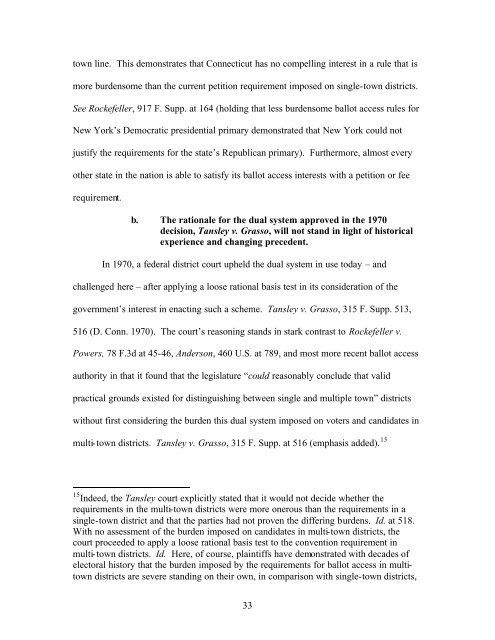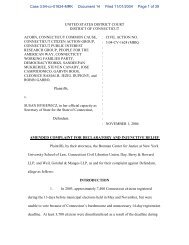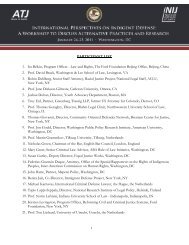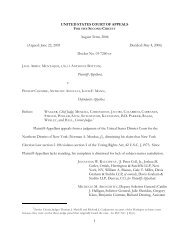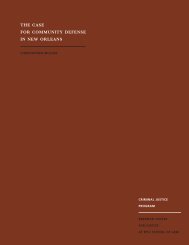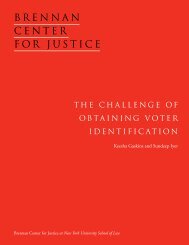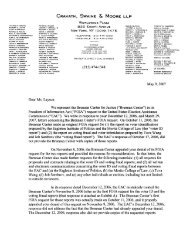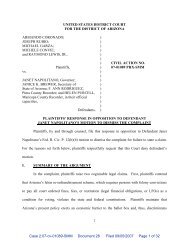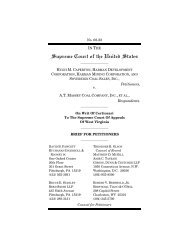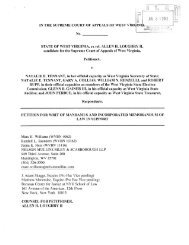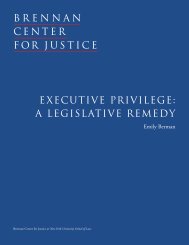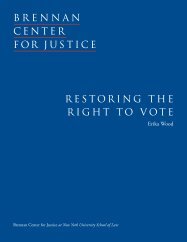MEMORANDUM OF LAW IN SUPPORT OF PLAINTIFFS' MOTION ...
MEMORANDUM OF LAW IN SUPPORT OF PLAINTIFFS' MOTION ...
MEMORANDUM OF LAW IN SUPPORT OF PLAINTIFFS' MOTION ...
Create successful ePaper yourself
Turn your PDF publications into a flip-book with our unique Google optimized e-Paper software.
town line. This demonstrates that Connecticut has no compelling interest in a rule that ismore burdensome than the current petition requirement imposed on single-town districts.See Rockefeller, 917 F. Supp. at 164 (holding that less burdensome ballot access rules forNew York’s Democratic presidential primary demonstrated that New York could notjustify the requirements for the state’s Republican primary). Furthermore, almost everyother state in the nation is able to satisfy its ballot access interests with a petition or feerequirement.b. The rationale for the dual system approved in the 1970decision, Tansley v. Grasso, will not stand in light of historicalexperience and changing precedent.In 1970, a federal district court upheld the dual system in use today – andchallenged here – after applying a loose rational basis test in its consideration of thegovernment’s interest in enacting such a scheme. Tansley v. Grasso, 315 F. Supp. 513,516 (D. Conn. 1970). The court’s reasoning stands in stark contrast to Rockefeller v.Powers, 78 F.3d at 45-46, Anderson, 460 U.S. at 789, and most more recent ballot accessauthority in that it found that the legislature “could reasonably conclude that validpractical grounds existed for distinguishing between single and multiple town” districtswithout first considering the burden this dual system imposed on voters and candidates inmulti-town districts. Tansley v. Grasso, 315 F. Supp. at 516 (emphasis added). 1515 Indeed, the Tansley court explicitly stated that it would not decide whether therequirements in the multi-town districts were more onerous than the requirements in asingle-town district and that the parties had not proven the differing burdens. Id. at 518.With no assessment of the burden imposed on candidates in multi-town districts, thecourt proceeded to apply a loose rational basis test to the convention requirement inmulti-town districts. Id. Here, of course, plaintiffs have demonstrated with decades ofelectoral history that the burden imposed by the requirements for ballot access in multitowndistricts are severe standing on their own, in comparison with single-town districts,33


